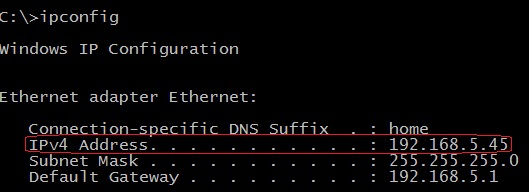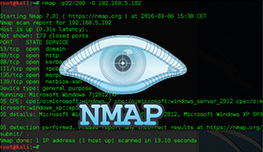IP address
An IP address is a 32-bit number assigned to each host on a network. Each device that wants to communicate with other devices on a TCP/IP network needs to have an IP address configured. For example, in order to access the Internet, your computer will need to have an IP address assigned (usually obtained by your router from your ISP).
An IP address is usually represented in dot-decimal notation, consisting of four-decimal numbers seperated by periods (e.g. 192.168.0.1). The first part of the address usually represents a network the device is on (e.g. 192.168.0.0), while the last part of the address identifies the host device (e.g. 192.168.0.1).
An IP address can be configured manually or be obtained from a DHCP server on your network. To find out your IP address in Windows, open the Command Prompt (Start > Run > cmd):
Type the ipconfig command. You should see a field named IPv4 Address:
To find out your IP address in Linux, use the ifconfig command. The field inet addr represents an IP address:
Note that the term IP address is usually used for IPv4, which is the fourth version of the IP protocol. A newer version, IPv6, exists, and uses 128-bit addressing.





